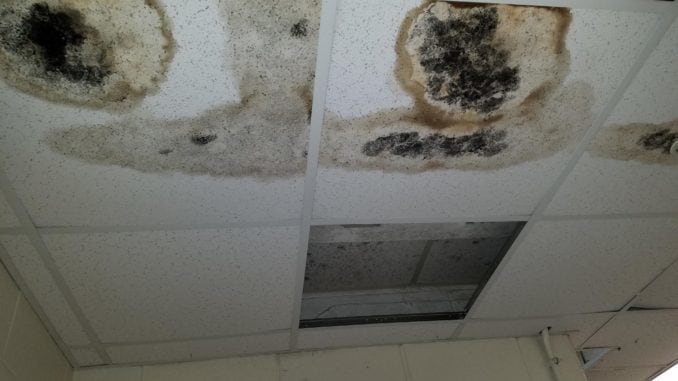Senators included more than $300 million for military housing oversight efforts and the outline of a new “tenant bill of rights” for military families in their first draft of the annual defense authorization bill released Thursday.
The Senate Armed Services Committee legislation also includes new contracting requirements for private housing firms working with the military, including additional quality control measures and health inspection schedules.
“After hearing from families all over the country, we knew we had to take strong action,” said Sen. Jim Inhofe, R-Okla., and chairman of the committee, said in a statement. “We worked together with military families and leaders to make important changes to privatized military housing, giving our families the peace of mind they deserve.”
The moves — which will have to be approved by the full Senate and House before they become law — come after months of hearings and investigation into problems with privatized military housing.
Last year, a Reuters investigation found evidence of mold, vermin and lead contamination in multiple base family housing units, and limited reaction from military officials to family complaints about the problems.
Military officials have promised systemic reforms, and the Senate proposals are designed to force those changes through legislative mandates.
The new “tenant bill of rights” would include a new dispute resolution process for military families to report housing problems or unaddressed repair issues with private companies. The committee’s version of that will similar to the one service officials have been crafting, but not identical, said Sen. Tim Kaine, D-Va., during a press call Thursday.
RELATED

The most important aspect of the new provisions regarding privatized housing, he said, is allowing military families to have a say in withholding their rent when maintenance problems are not fixed, as those renting in the private sector are able to do, he said.
“As mad as I am at some of the housing providers….treating military families in a way they would never treat a commercial renter… I’m even madder at the military, because it’s the military that has to be responsive to the troops and their families,” Kaine said. He said the main thrust of the provisions will be to hold the military responsible. More details will be provided later as officials release the text of the bill.
“It’s pretty clear the military decided to outsource a function they didn’t think was core to warfighting, they outsourced it to private contractors, and didn’t give the program the oversight it needed.”
Committee staff said the bill also includes some new requirements for tracking by defense health officials of medical issues related to toxic exposure issues at substandard housing. The Army has established a registry to track such medical issues, but the other services have not.
The legislation would also prohibit the Defense Department from giving some performance incentive awards — things like “employee of the month” — to private housing firms, in an effort to maintain a more professional oversight distance between the government and contractors, according to committee. But families — and lawmakers — have also questioned why lucrative financial incentives are paid to the contractors even when their performance is not up to par.
Sen. Kirsten Gillibrand, D-N.Y. and ranking member of the personnel panel of the committee, said earlier this week the bill language would include reducing some “extra housing payments” military officials make to private housing contractors in order to “allow the services to use the funding to improve housing and incentivize better performance by contractors.” Information isn’t yet available about how the financial incentives are addressed in the bill.
Staff said in multiple interviews with troops and families, they heard complaints of an “unholy marriage” between contractors and local military officials, undermining attempts at accountability. In data released in February from an online survey, more than half of the 14,558 families who responded who live in privatized housing reported having a negative experience. The survey was conducted by the Military Family Advisory Network.
The bill also includes nearly $302 million “to ensure each installation has the necessary government housing personnel to implement thorough oversight and planning measures.” Staff said they heard complaints of frequent turnover and staffing shortages in military offices charged with overseeing housing issues.
Kaine said the bill also clarifies issues of which law enforcement agency — military or civilian — has jurisdiction in privatized housing areas that are outside the installation. It won’t be one solution for all installations, but will make it the responsibility of the base commander “to make sure there’s clarity about who’s providing the law enforcement response. In some cases it may be joint jurisdiction, which is fine, but it shouldn’t be nobody’s responsibility, and that needs to be clarified,” he said.
The defense authorization bill, which has passed annually for more than five decades, includes $750 billion in total defense spending. House Armed Services Committee lawmakers are expected to vote on their own draft of the legislation — with their own proposed housing reforms — next month.
Leo covers Congress, Veterans Affairs and the White House for Military Times. He has covered Washington, D.C. since 2004, focusing on military personnel and veterans policies. His work has earned numerous honors, including a 2009 Polk award, a 2010 National Headliner Award, the IAVA Leadership in Journalism award and the VFW News Media award.
Karen has covered military families, quality of life and consumer issues for Military Times for more than 30 years, and is co-author of a chapter on media coverage of military families in the book "A Battle Plan for Supporting Military Families." She previously worked for newspapers in Guam, Norfolk, Jacksonville, Fla., and Athens, Ga.




